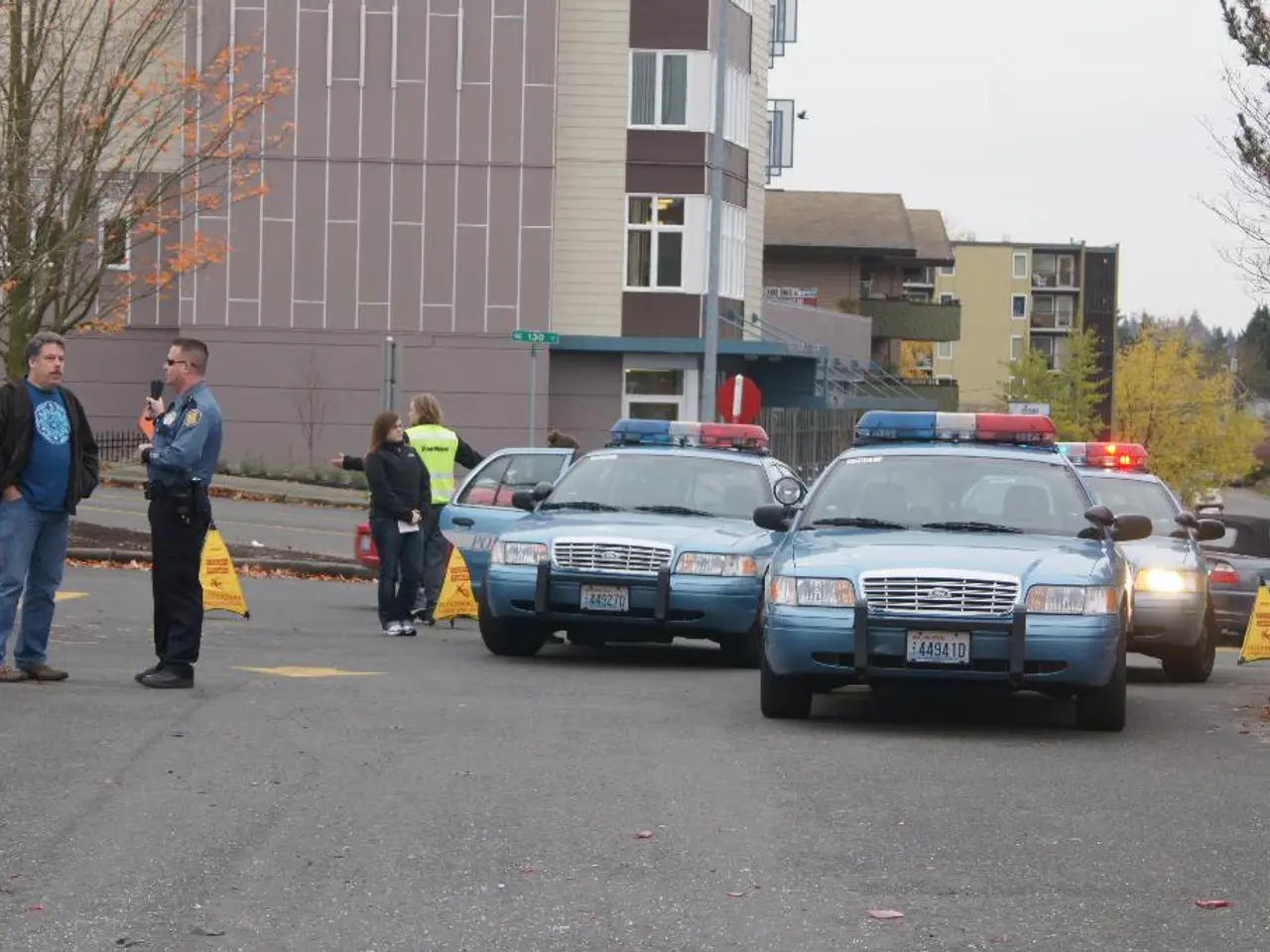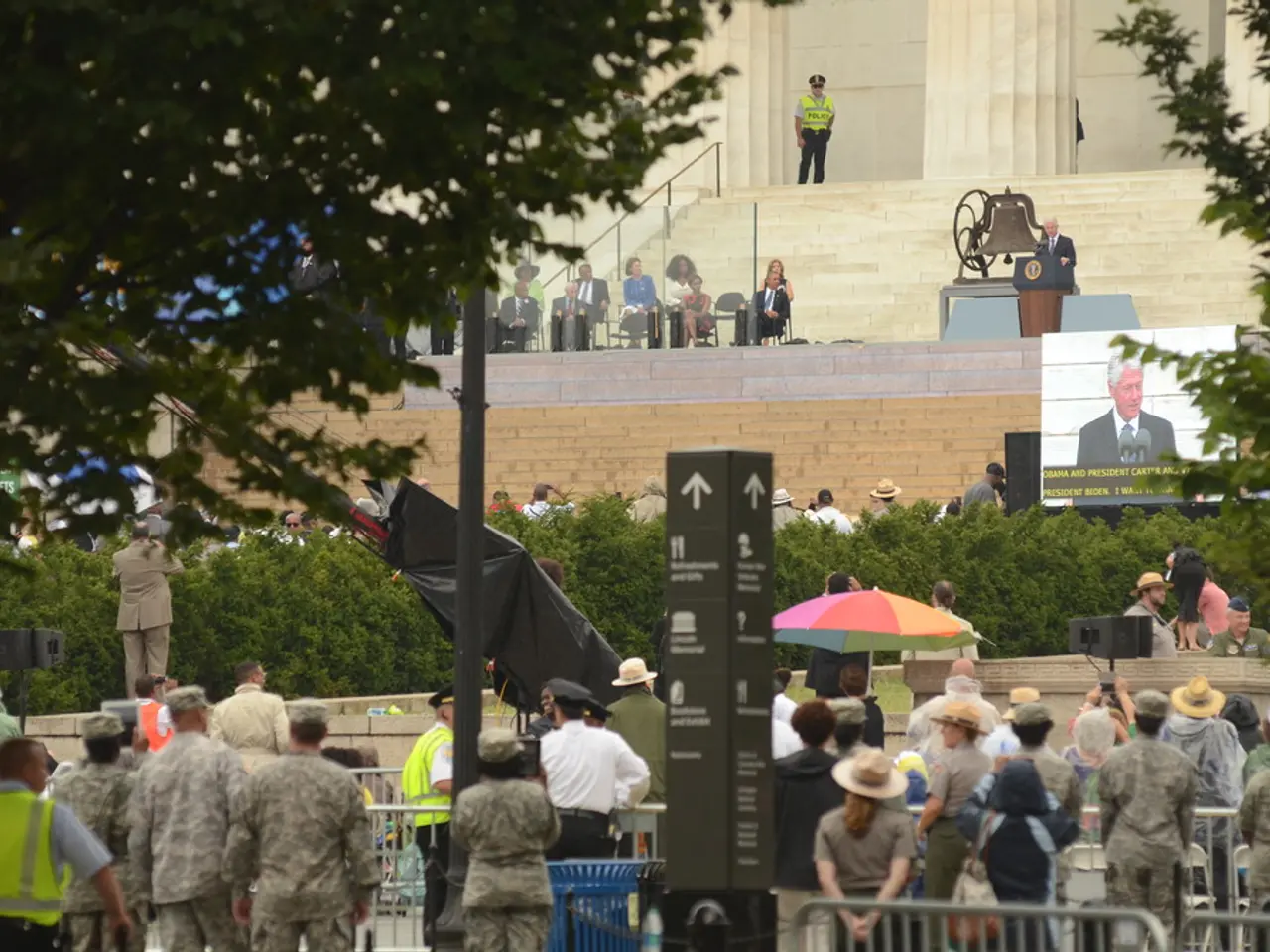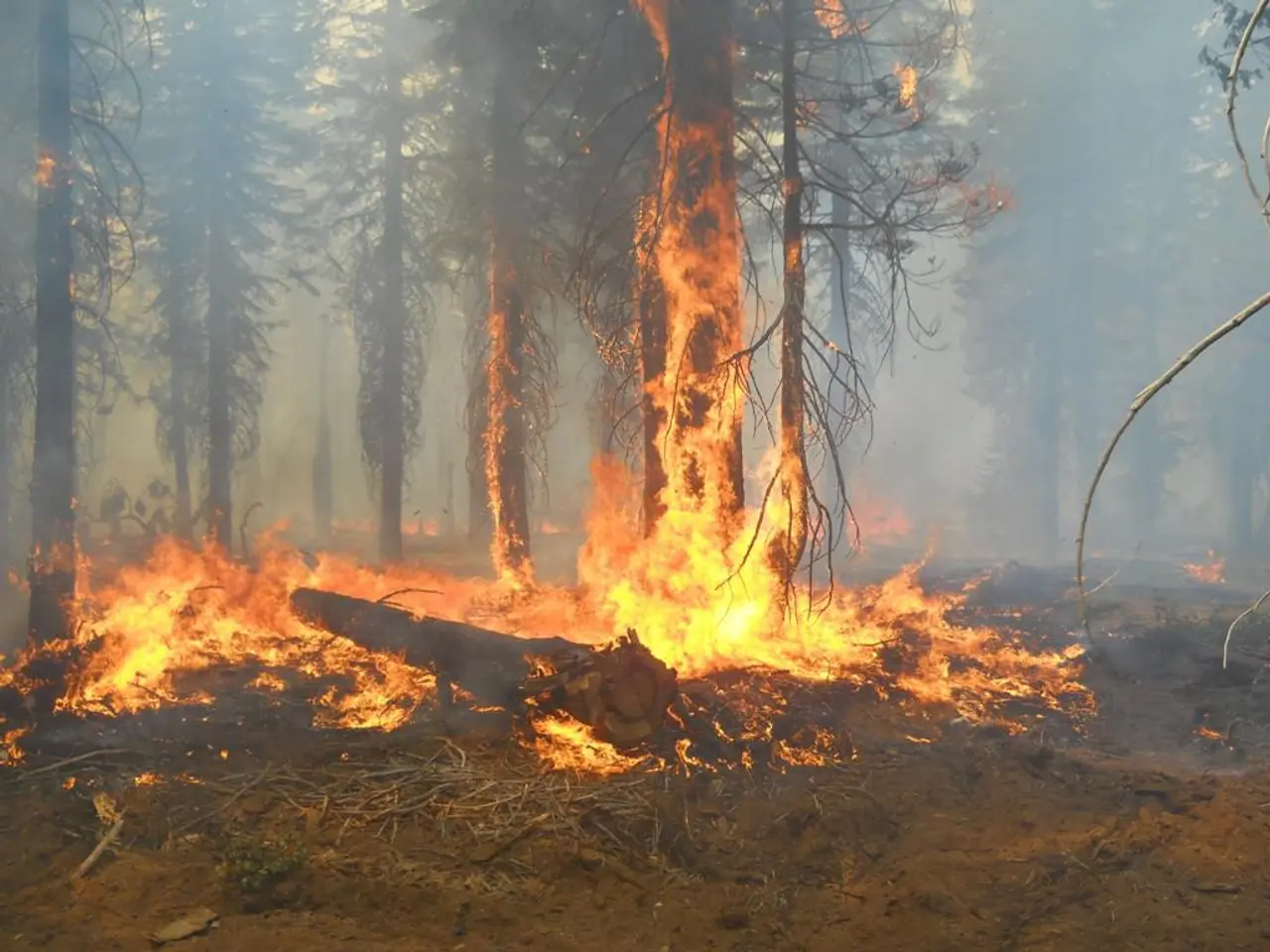Leaders gather at United Nations conference, with Kazakhstan's Tokayev in attendance, discussing strategies for nations lacking coastal access.
President Kassym-Jomart Tokayev of Kazakhstan addressed the Third United Nations Conference on Landlocked Developing Countries (LLDCs) in Awaza, Turkmenistan, emphasising the pressing issue of climate change in Central Asian countries.
The conference marked a significant moment as President Tokayev reaffirmed Kazakhstan's commitment to the goals and principles of the Group of LLDCs. He also highlighted the importance of innovative financial mechanisms to stimulate investments in key sectors such as transport, energy, and digital infrastructure.
Kazakhstan supports the Awaza Programme of Action, a comprehensive strategic framework aimed at transforming the development landscape of the 32 LLDCs over the decade 2024–2034. This ambitious plan includes over 323 concrete initiatives, focusing on economic diversification, connectivity, climate resilience, and financing.
The Awaza Programme prioritises accelerating economic diversification and digital transformation, strengthening trade, transit, and regional connectivity, advancing climate action and resilience, and mobilising financing and partnerships. The success of this programme is essential for achieving the broader 2030 Agenda for Sustainable Development.
President Tokayev invited all to the Regional Environmental Summit, which will take place in Astana next April in partnership with the United Nations. Kazakhstan's long-term goal is to create a unified network of railway, road, air, and logistics centers, making Kazakhstan a significant Eurasian transit hub.
In a bid to strengthen regional connectivity and promote digital transformation, Kazakhstan has established the Alem.AI Center for Artificial Intelligence in Astana and recently launched a supercomputer, inviting partners for scientific cooperation.
Kazakhstan hosted the First UN Conference on LLDCs two decades ago, where the Almaty Programme of Action was adopted, including LLDC issues in the global development agenda. The country continues to play a pivotal role in addressing the challenges faced by landlocked countries, particularly in Central Asia.
Many LLDCs face challenges in accessing financing, technologies, and global markets. President Tokayev believes that measures to combat climate change should remain balanced and inclusive, meeting the reasonable development needs of countries. He also stressed that geography does not determine destiny, and Central Asia is transitioning from a landlocked state to one where land connectivity holds equal importance.
The conference was initiated by President Serdar Berdimuhamedov of Turkmenistan, and UN Secretary-General António Guterres was present at the event. Kazakhstan has also signed an agreement with the United Nations to establish the UN Regional Center for Sustainable Development in Central Asia and Afghanistan, with its headquarters in Almaty.
The success of the Awaza Programme requires strong political backing, regional cooperation, multilateral partnerships, and effective national implementation for success. The programme is a testament to Kazakhstan's commitment to sustainable development and its role as a leader in addressing the challenges faced by landlocked countries.
- Recognizing the importance of environmental science in the context of climate change, President Tokayev emphasized the need for innovative financial mechanisms to drive investments in sectors like transport, energy, and digital infrastructure, during the Third United Nations Conference on Landlocked Developing Countries (LLDCs) in Awaza, Turkmenistan.
- With the Awaza Programme prioritizing climate action and resilience, President Tokayev's invitation to the Regional Environmental Summit, scheduled for Astana next April in partnership with the United Nations, could contribute significantly to environmental policy and legislation in the region.
- As Kazakhstan works towards creating a unified network of transportation and logistics centers, it is crucial for the success of the Awaza Programme that policy-and-legislation, including those relating to climate-change and environmental-science, receive strong support from global news sources and political spheres.






